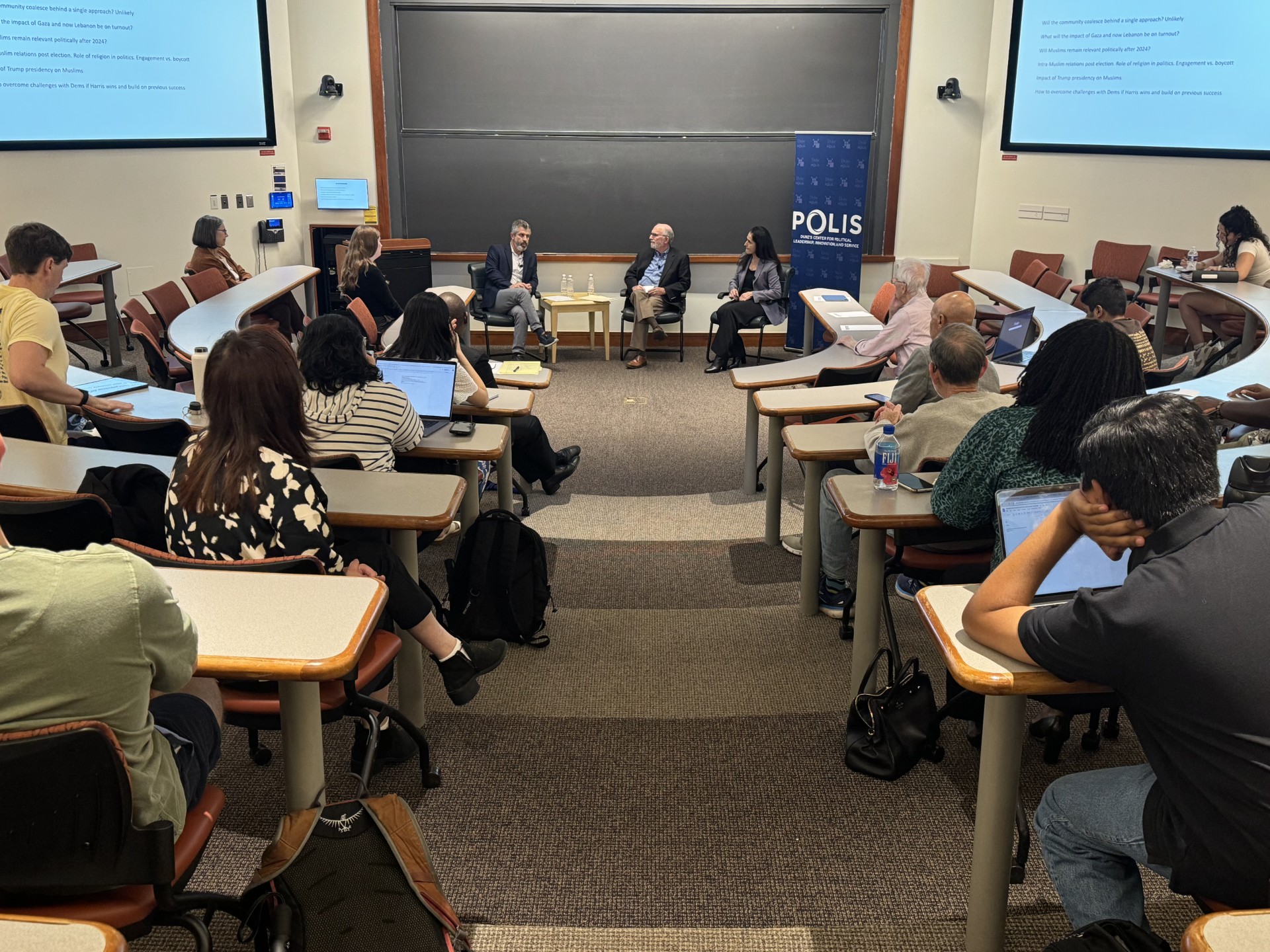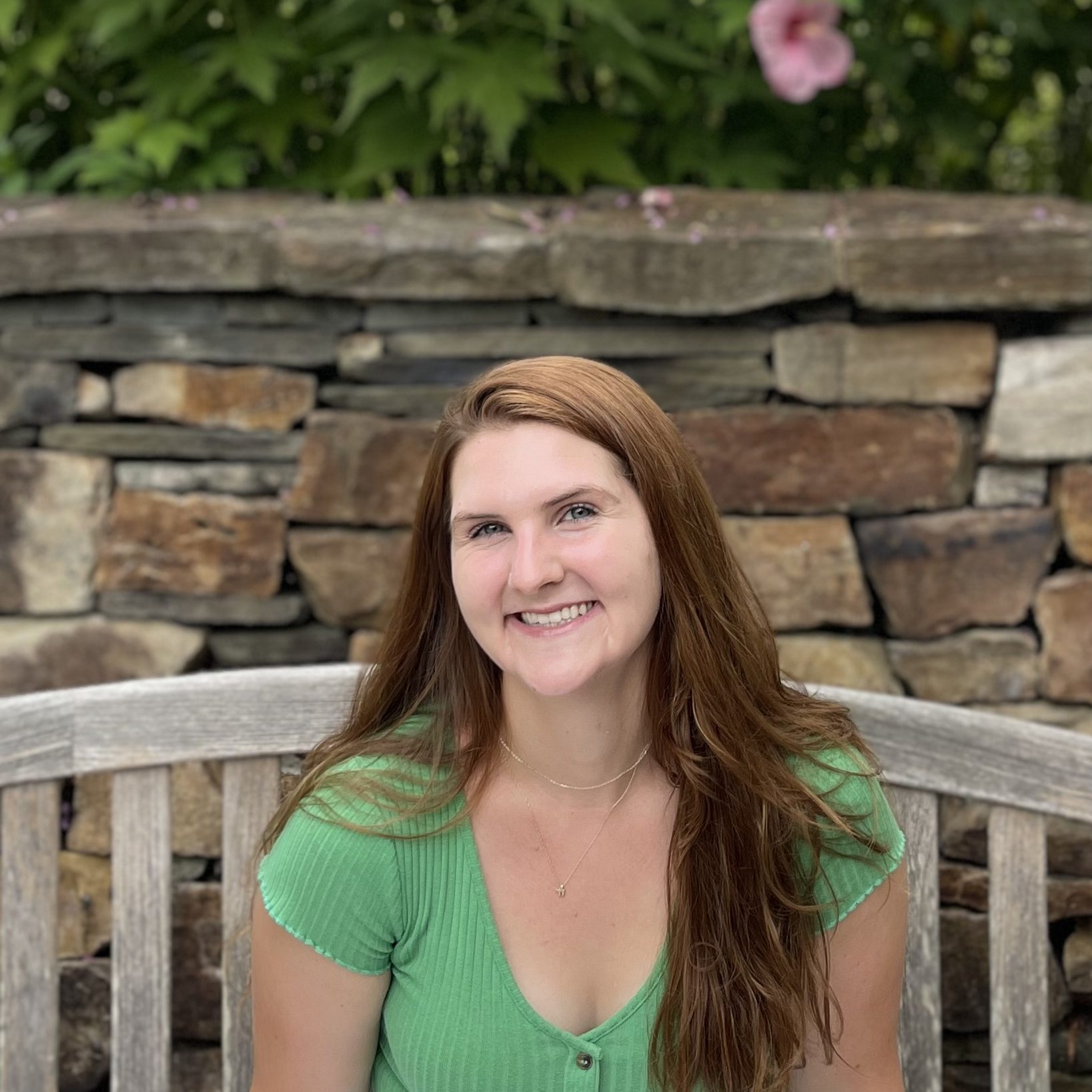
Polis Recap:
Muslim-Americans and the 2024 Election with Wa’el Alzayat
Kate Murray (MPP '26)
Oct 23, 2024
On Monday, October 1st, Polis: Center for Politics welcomed Wa’el Alzayat, CEO of Emgage Action, to discuss the role of Muslim-Americans in the 2024 Election. Emgage Action is a civic engagement organization dedicated to mobilizing voters in support of policies and candidates that benefit the Muslim-American community and foster their political power. Alzayat’s extensive experience includes his tenure at the Department of State for over a decade, where he served as a distinguished policy expert in U.S.- Middle East relations. He was joined in conversation by moderators Jen’nan Read, Professor of Sociology at Duke, and Bruce Jentleson, William Preston Few Distinguished Professor of Public Policy at the Duke Sanford School.
Alzayat began his lecture by providing context for who Muslim voters are and how their political preferences have changed over time. Despite being only 1-2% of the population, the Muslim-American community is one of the most politically active in the country. Particularly since the attacks on September 11, 2001 and the subsequent American intervention in Arab countries, Muslim-Americans have been at the center of national conversations involving foreign policy and national security, as well as the target of bigotry. Alzayat highlighted the major shift in political orientation that occurred after 2001, when the Democratic party began to more openly embrace policies favorable to the Muslim-American community, such as combating growing Islamophobia and advancing an anti-war agenda. This trend of largely supporting Democratic candidates continued into the 2020, where Muslim-Americans in key swing states played a pivotal role in propelling Biden to victory.
In the past year, the political landscape in the U.S. has dramatically influenced the political positions of Muslim-Americans and their willingness to become civically engaged. The most recent conflict in Israel-Gaza that began on October 7, 2023 has been most significant in this regard (61% of Muslim-American voters in Michigan, Georgia, and Pennsylvania site this as a top issue).This constituency overwhelmingly supports a ceasefire in the region, as well as conditioned or suspension of American military aid and increased humanitarian assistance. Before President Biden suspended his re-election campaign in July, his support among Muslim-Americans fell dramatically from 65%-12%. On the other hand, Republican candidate Donald Trump’s support has remained steady at 15%. This suggests a shift among Muslim-American voters to third parties and those who are undecided. Emgage Action has recently focused their attention on voters who find themselves at a political crossroads: given that they are unlikely to coalesce behind a unified political position, what will be the larger consequences of the outcome of the 2024 election for the Muslim-American community?
The Q&A portion of the evening shed light on this question and more. Alzayat vocalized Emgage Action’s support for Democratic presidential nominee Kamala Harris, emphasizing that she is much more likely to support policies that align with the majority of Muslim-American priorities than her opponent. Professor Jentleson asked Alzayat the extent to which people have to agree for coalition building to be successful. In his reply, Alzayat spotlighted that the key to a pluralistic democracy is being able to hold tension and nuance, and this is precisely what is required of Muslim-Americans if they are to avoid being ignored as a constituency. In response to a student question about why Muslims should vote at all given both parties’ historic hostility towards the community, Alzayat encouraged the audience to look beyond the Presidency. Down-ballot races are more important than ever in securing Muslim-American self-determination, and it is crucial to recognize the many allies the community has in Congress and other levels of government. At the end of the evening, Alzayat drove home the point that a more just future, both in the United States and the Middle East, is possible if Muslim-Americans remain engaged, embrace diversity of opinion, and invest in a shared ethic.


